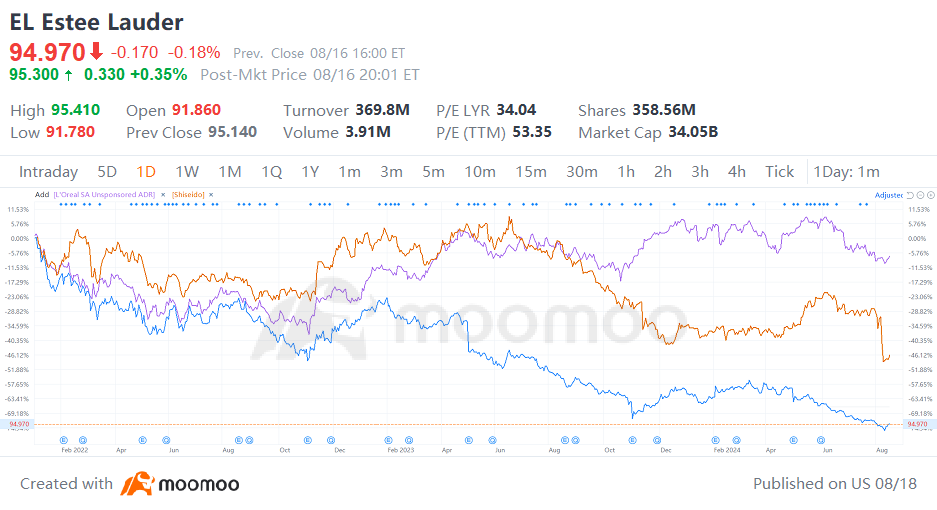Long-term, Ulta Beauty's fundamentals remain strong with robust cash flow. As the largest specialty beauty retailer in the U.S., Ulta operates approximately 1,400 stores and offers around 25,000 products. Its loyalty program boasts over 40 million active members. Since 2009, the company's earnings per share have increased 60-fold, and it regularly repurchases shares. Ulta Beauty is also one of the few retailers to expand nationally without incurring debt, with $525 million in cash on its latest balance sheet. Analysts estimate it will generate about $1.1 billion in free cash flow this year.






山芭佬 :![undefined [undefined]](https://static.moomoo.com/nnq/emoji/static/image/default/default-black.png?imageMogr2/thumbnail/36x36)
Muhammad Rafli :
James 101542649 :![undefined [undefined]](https://static.moomoo.com/nnq/emoji/static/image/default/default-black.png?imageMogr2/thumbnail/36x36)
![undefined [undefined]](https://static.moomoo.com/nnq/emoji/static/image/default/default-black.png?imageMogr2/thumbnail/36x36)
Mikel Ridgeway266y : well
Judy wealthy Dula : Not sure if I want to invest in cosmetics if the economy is slowing down.